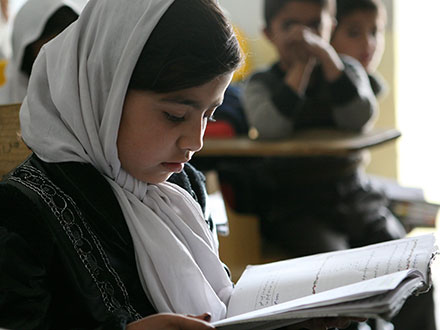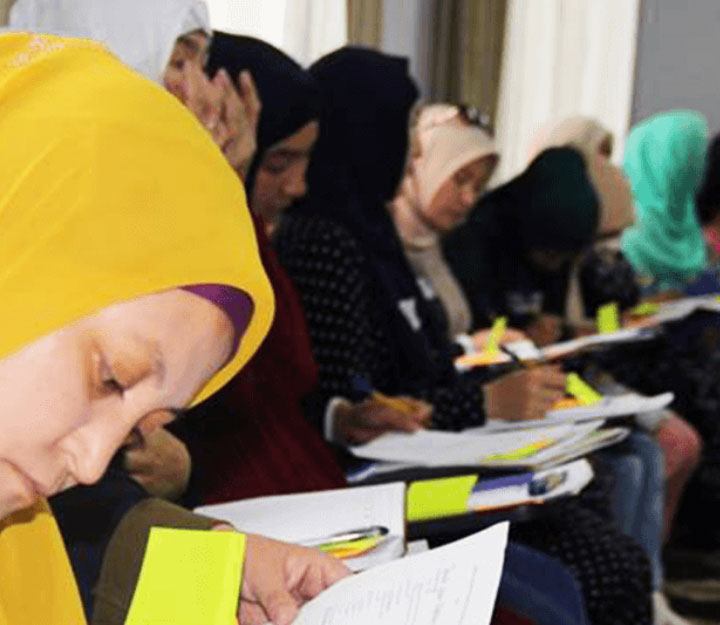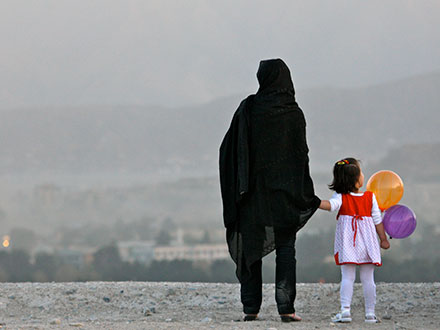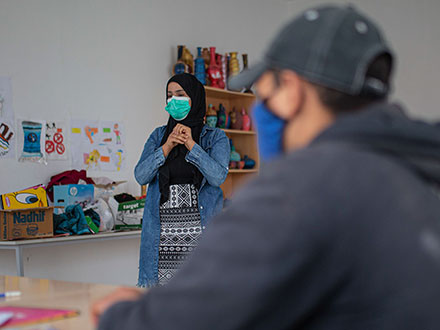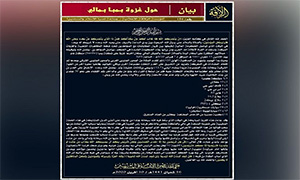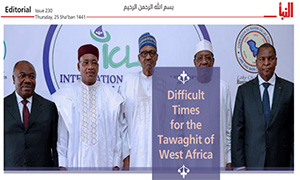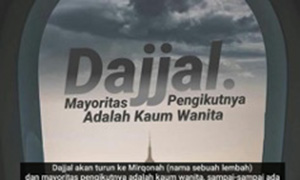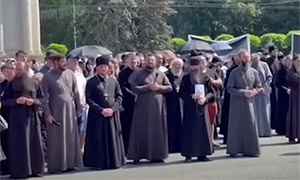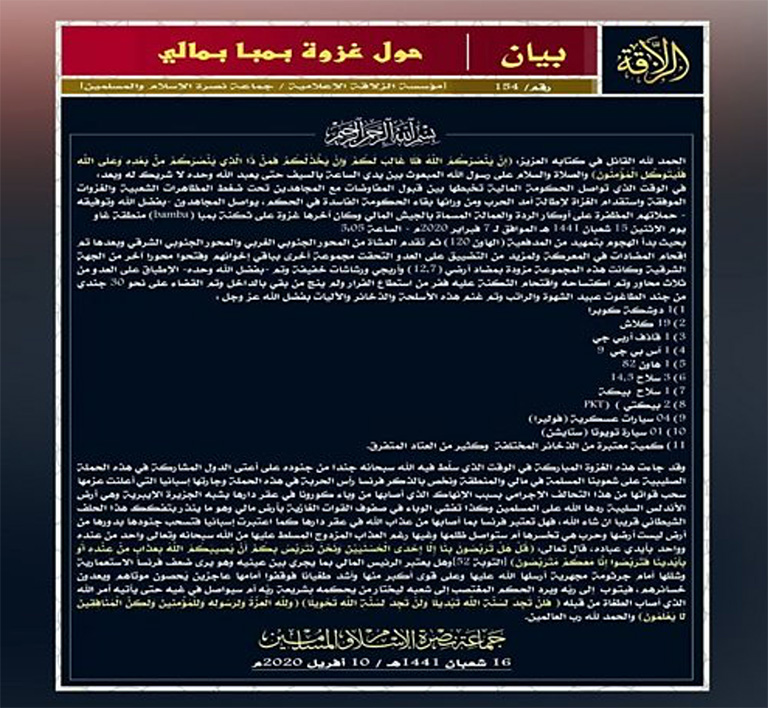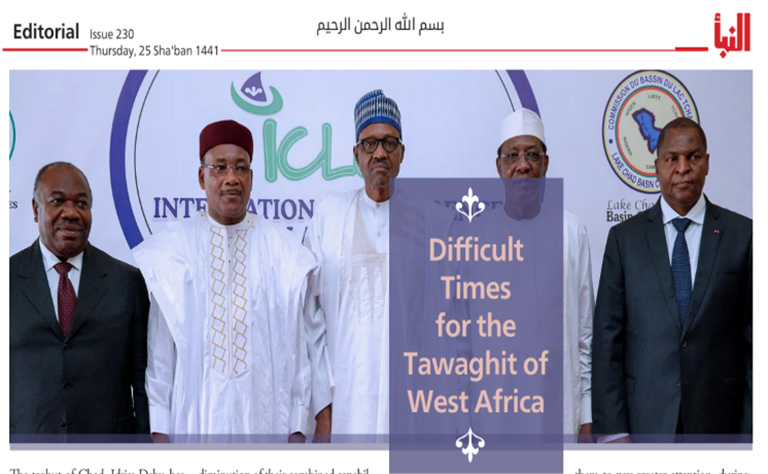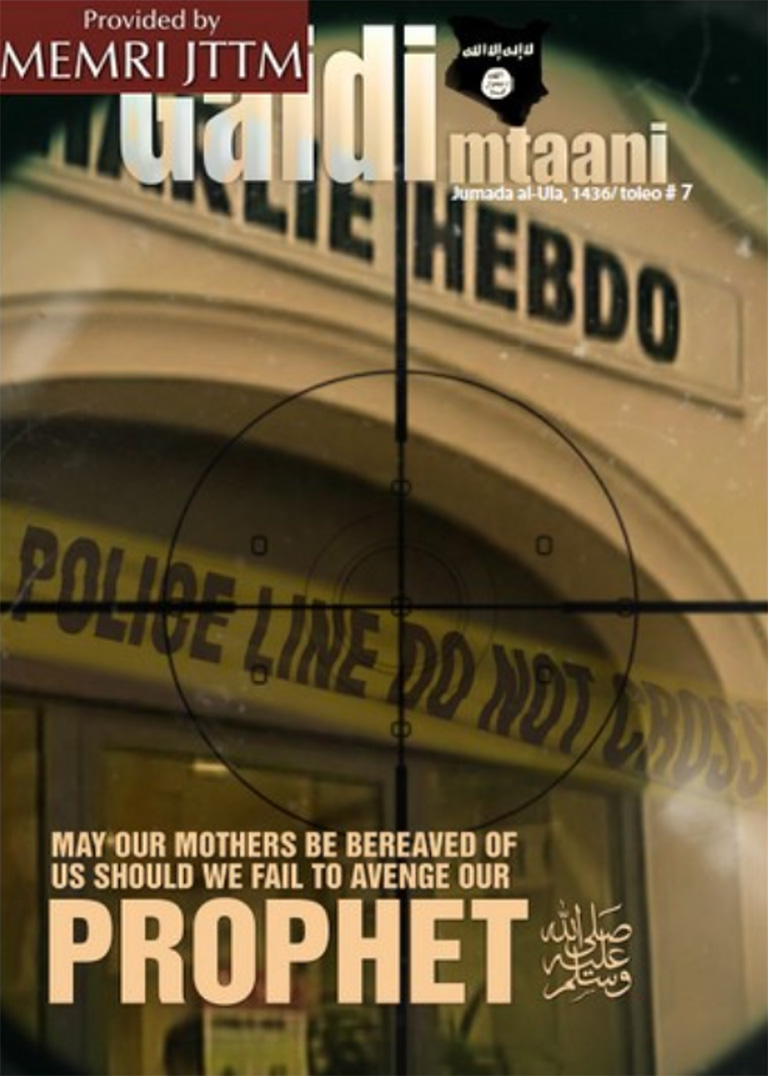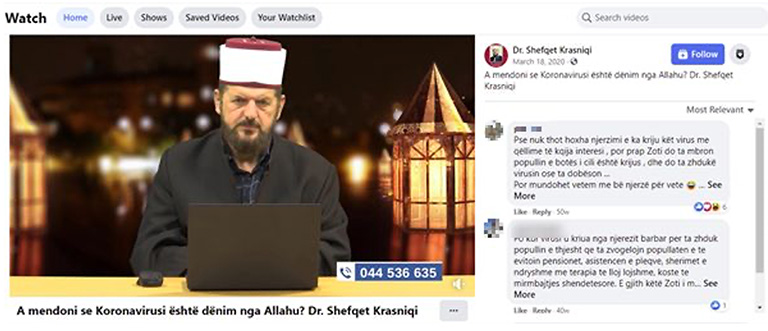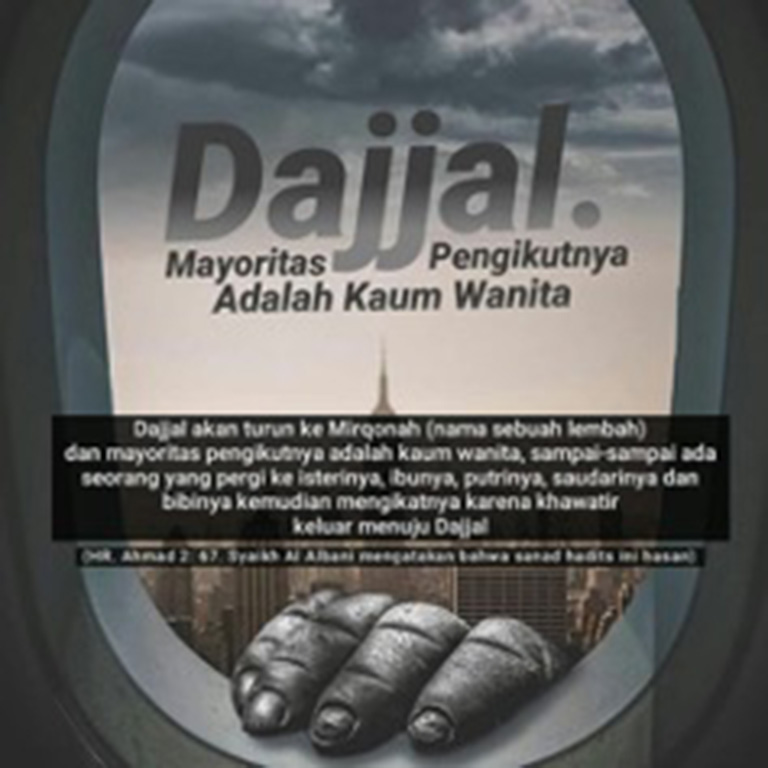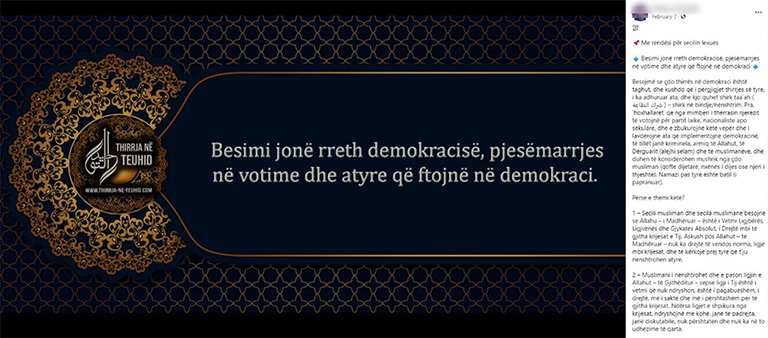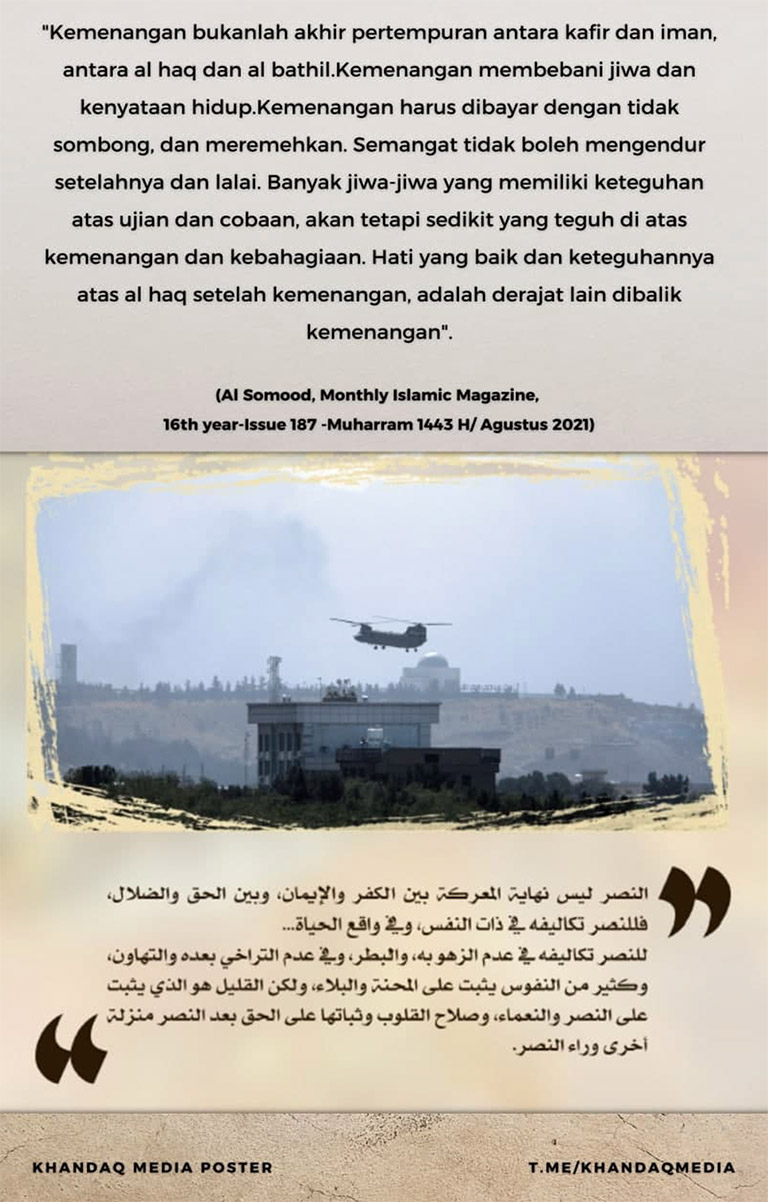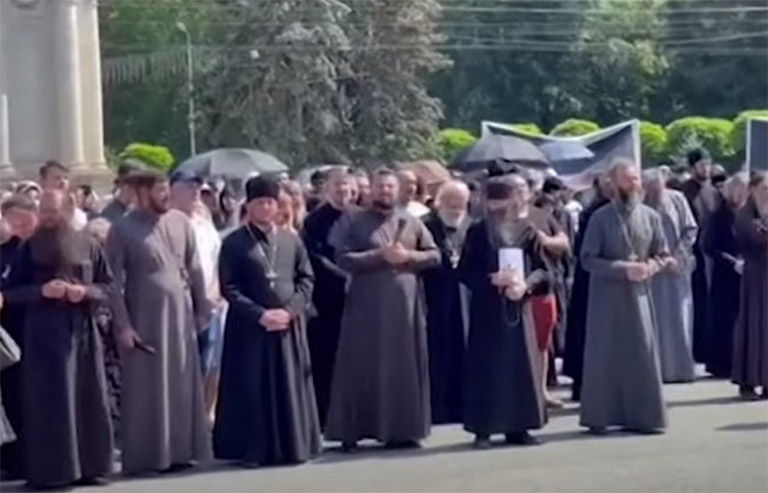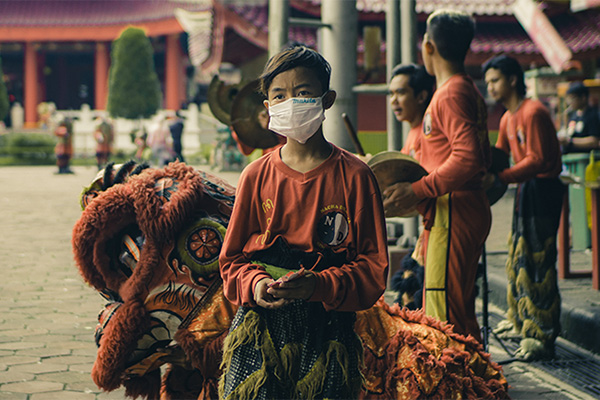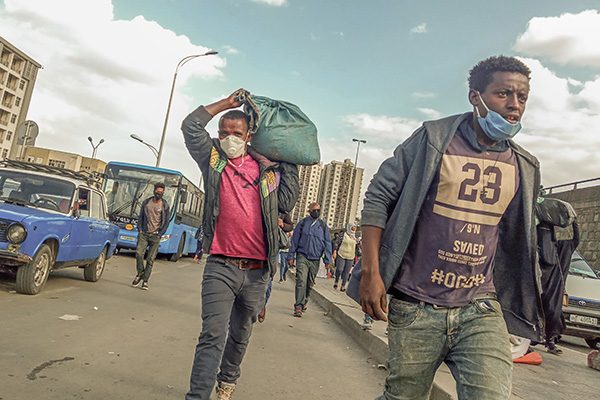
The Reshaping of the Terrorist and Extremist Landscape in a Post Pandemic World
A major research program investigating the impact of COVID-19 on terrorist and extremist narratives.

Divine Retribution
Divine retribution became a recurrent metanarrative in VEO communications in the four regions of focus. Specific narratives belonging to this category typically framed COVID-19 as a form of punishment from God (Allah) against apostates, nonbelievers, and/or perceived enemies of the religion (often the West, China, and the US).
About this narrative
COVID-19, in the eyes of violent extremist groups, was usually on their side: retribution in viral form against their enemies. For example, amid rising case numbers in the Lake Chad Basin of West Africa in April 2020, the Boko Haram faction of Jama’atu Ahlis Sunna Lidda’awati wal-Jihad (JAS) released an audio statement stating that COVID-19 was divine punishment for widespread fornication, sodomy, usury, and non-payment of zakat (mandatory charity).1 The Al-Qaeda affiliate Jamaat Nusrat al-Islam wal-Muslimin (JNIM), present in Mali, Niger and Burkina Faso, released similar commentary. Following an attack that left 30 Malian soldiers dead in April 2020, the group credited COVID-19 for weakening international troops in the Sahel and thanked God (Allah) for “deciding to send his soldier to help fight the enemy.”2 In 2021, while most groups in West Africa and globally decreased their use of retributive imagery related to COVID-19, the JNIM al-Zallaqa news channel released a 17-minute audio message entitled “Unquestionably, the Help of God is Near.” In it, JNIM’s leader, Iyad al-Ghali, condemns France and other western countries for their “war on Islam and Muslims” and reiterates the narrative that COVID-19 was a hidden soldier sent by God to help fight his enemies – specifically referencing France and the United States.3
Examples of Divine Retribution Narratives in Extremist Propoganda
Al-Shabaab, the most prominent VEO in East Africa and the Horn of Africa, also used divine retribution narratives to address the onset of COVID-19. The group claimed that the disease (“a plague from Allah”) only affects enemies of Islam, that the virus was on the rise because of the “increase in human sins” and that nonbelievers across the globe would be punished for their “evil deeds against Muslims and Jihadists.”4 In Somalia, Al-Shabaab continued using COVID-19 to advance their narratives in 2021, blaming Western forces (crusaders, in their terminology) for spreading COVID-19. Civil society groups contacted by the field researchers corroborated this finding. That narrative soon spread to neighboring countries.5 Daesh and al-Qaeda affiliated groups in East Africa and Horn also tailored narratives from global VEOs to address local audiences, foretelling the pandemic as God’s wrath against the West.6 Notably, Uganda and Eritrea did not have locally developed COVID-19 related narratives from extremist groups. However, the spread of narratives from other countries – made easier via the Internet – led to widespread fear and social tensions. Researchers found that conspiracy theories in Uganda followed similar patterns as extremist narratives in Kenya and Somalia: COVID-19 was characterized as a curse from God, a Chinese sickness, a biological weapon with efforts to initiate a World War III, or a punishment from God because of the destruction of mosques in China.
Extremist narratives depicting COVID-19 as a form of punishment were also present in the Balkans, although they were usually associated with radical – yet peaceful – religious figures instead of VEO groups. For example, the religious leader Armand Ali, in Kosovo, described the pandemic as “Allah’s punishment for mankind.”7 In a similar vein, Shefqet Krasniqi, a conservative spiritual leader in Kosovo, also promoted this narrative.8
VEO narratives examined on Telegram in Southeast Asia also held COVID-19 to be punishment for those who have wronged God. The disease allegedly spread via vice in their discourse: through strippers, for example. COVID-19 was also referred to as the “Soldier of Allah” in extremist narratives in Southeast Asia – perceived as targeting ideological enemies in the US, Europe, and China. This framing corresponds with the positive view promoted by JNIM in West Africa: COVID-19 was a divine helping hand in the fight against the enemy(s).9
Another theme identified in Southeast Asia narratives – more notably in 2020 than during the following year – was apocalyptic messaging about end times. The COVID-19 pandemic became a religious signal that the world was ending in these cases. Although a distinct narrative, it is noteworthy in this discussion because it further highlights how COVID-19 was attributed to the divine by radical and extremist actors. This narrative was popularized by pro-Daesh militants over social media, particularly on Telegram during 2020, as they saw the spread of the infection as a sign of end times and the appearance of the eschatological figure in Islam known as Imam Mahdi.10 A firebrand Indonesia Iman, Ihsan Tanjung, also found a receptive audience through his YouTube videos and audio sermons on Telegram that advised followers to make hijrah (migration) to Saudi Arabia to await the prophesied redeemer, seek higher land in Indonesia to avoid the coming apocalyptic tidal wave, or to wait and accept death.11
Footnotes
Unmasking Boko Haram, (2020). Boko Haram – Abubakar Shekau Audio Message on Coronavirus – April 15, 2020 [online video], Presenter Abubakar Shekau, Lake Chad Area, 2020, (accessed 12 October 2021) Translation from Hausa to English by authors.
Al-Lami, M. (2020). Analysis: Key jihadist responses to Covid-19, Statement on the Bamba incursion in Mali, Jama'at Nusrat al-Islam wal-Muslimin (JNIM), al-Zallaqa Media Production Company, 11/04/2020.
Visit SourceAaron Y. Zelin, (2021), Unquestionably, The Help of God is Near (audio) Iyad al-Ghali, (accessed on 27 October 2021 and translated from Arabic to English by authors).
Sh. R Aula, (2020), ‘COVID-19 Pandemic and Al Shabab’s Operations,’ Brave Insight (accessed 22 November 2021).
Visit Sourceibid.
J. Meek, (2020), ‘Terrorists spin COVID-19 as God’s “smallest soldier” attacking the West,’ ABC News (accessed 16 October 2021).
Visit SourceArmand Ali, Facebook (accessed 23 September 2021).
S. Krasniqi, 'A mendoni se Koronavirusi është dënim nga Allahu?', Facebook (accessed 23 September 2021).
Internal Telegram database, (2020).
Generasi Khilafa, Telegram.
Ustadz Ihsan Tanjung Curigai Vaksin”, Islami.co, July 6, 2021.







